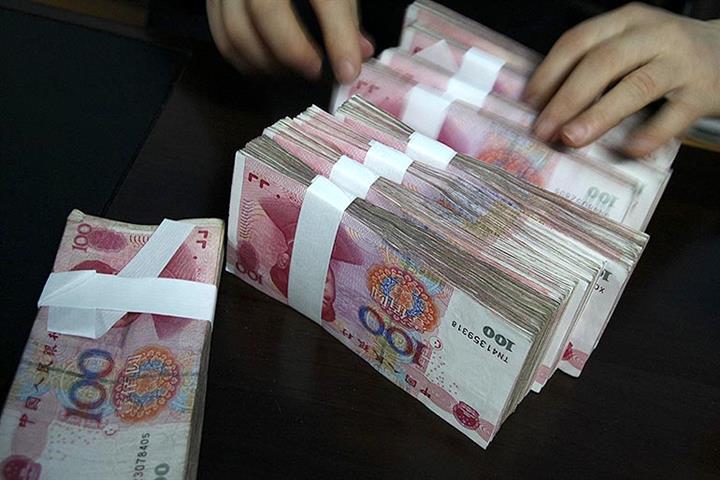 Yuan’s Quick Appreciation Is Not Sustainable, Ex-PBOC Official Says
Yuan’s Quick Appreciation Is Not Sustainable, Ex-PBOC Official Says(Yicai Global) May 28 -- The Chinese currency's rapid appreciation against the US dollar will not continue in the long-term, according to a former director at China's central bank.
The renminbi's rising value is not in line with the economic and financial situation at home and abroad, Xinhua News Agency reported yesterday, citing Sheng Songcheng, professor at China Europe International Business School.
Sheng worked for the People's Bank of China for many years and used to serve the central bank’s statistics and analysis department as its director.
The redback hit the strongest level in nearly three years against the US dollar on May 27. By now, the onshore yuan has gained 8.2 percent against the US dollar since the second half of 2020. The rate had stabilized at around 6.5 late last year.
The appreciation streak is caused by the country's recovery since the second half of last year. China has achieved positive economic growth by bringing its Covid-19 outbreaks under control and largely resuming work, said Sheng.
Moreover, the central bank has kept its balance sheet at around CNY38 trillion (USD5.97 trillion), maintaining its normal monetary policy, the professor added.
China has become the world's top destination for foreign direct investment, and foreign funds have significantly increased their holdings of renminbi assets, which also has pushed up the yuan's exchange rate, said Sheng.
But the forex rate is showing signs of stabilization without new stimulus since the end of last year, he added.
The yuan may be headed down for another reason too. The US economy is expected to rebound in the second half, which should strengthen the greenback, said Sheng.
Commodity Price Hikes
The changes are not linked to the surging raw material prices, according to Sheng.
The yuan's rise cannot offset the recent increases in commodity prices as those are caused by the global correlation between supply and demand, as well as speculation, said Sheng. It is impossible to fix that by firming the redback, he added.
China encourages long-term capital investment, but should prevent large inflows of short-term capital, which may drive up the renminbi's forex rate, weaken the competitiveness of exporters, and disrupt China's financial market and its independent monetary policy, he added.
Two-Way Moves Are Normal, PBOC Says
China’s central bank made two statements last week regarding the yuan's climb.
Two-way fluctuations of the yuan will become the norm in the future as the exchange rate continues to depend on market supply and demand, as well as changes in the international financial markets, said Liu Guoqiang, deputy governor of the PBOC, on May 23.
On May 27, the PBOC and the State Administration of Foreign Exchange said they will organize the seventh meeting of the China FX Market Self-Regulatory Framework, a self-regulatory mechanism. Participants concluded that the current foreign exchange market is generally balanced but in the future, the yuan may appreciate or depreciate based on different market and policy factors.
China will resolutely crack down on market manipulation and spreading malignant unilateral expectations regarding the exchange rate, the participants said. Enterprises should not roll the dice as gamblers will always lose money gambling, they added.
China should focus on the balance of imports and exports, enhance the flexibility of the exchange rate, and appropriately strengthen the yuan to resist the effects of importing, said Lv Jinzhong, director of the investigation and research department at the PBOC's Shanghai bureau, wrote in an article published in the China Finance on May 21.
Some anticipated the surge. The renminbi will continue to appreciate against the US dollar in the medium to long-term, Zhou Chengjun, director of the PBOC's financial research institute, said at a conference in April.
Editor: Emmi Laine, Xiao Yi